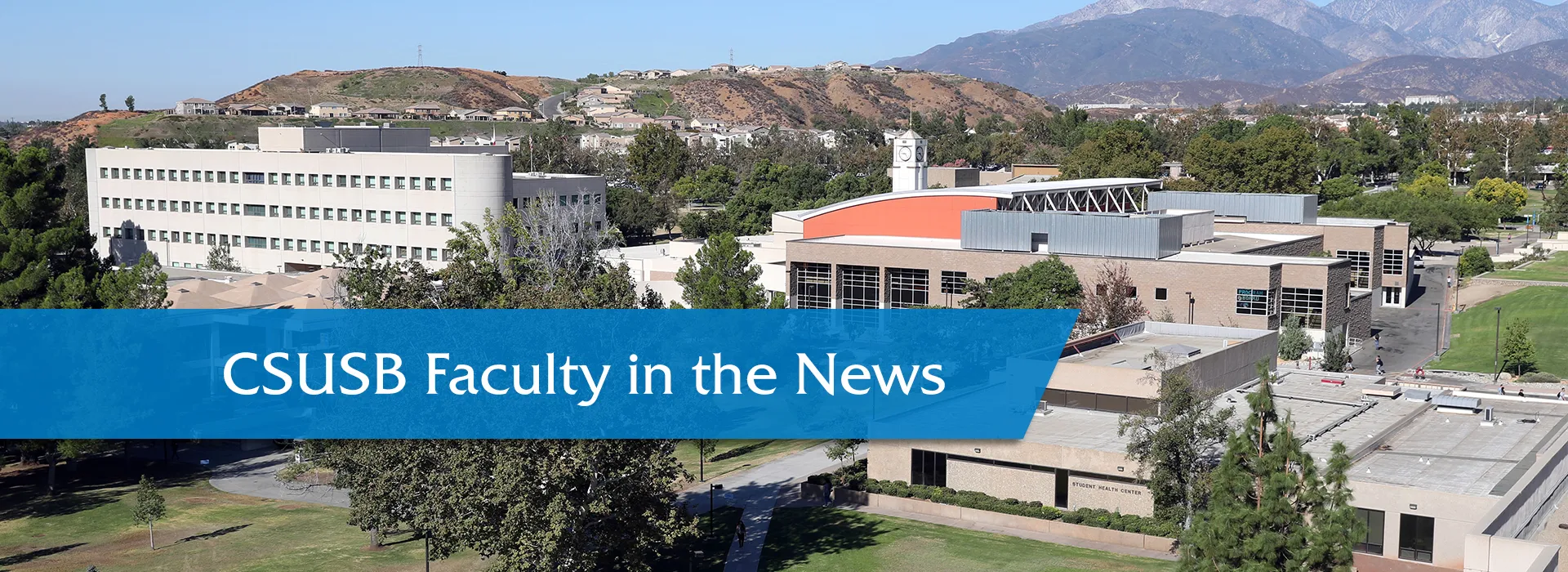NOTE: Faculty, if you are interviewed and quoted by news media, or if your work has been cited, and you have an online link to the article or video, please let us know. Contact us at news@csusb.edu
CSUSB center’s hate crime study cited
Campus Safety
June 12, 2019
And article that takes a closer look at hate crime data from the FBI and the Bureau of Justice Statistics’ survey include a report conducted by Kevin Grisham and Brian Levin of the Center for the Study of Hate & Extremism at California State University, San Bernardino, which found similar results as the two federal surveys in 30 major U.S. cities from 2010-2018.
According to Levin, 70 percent of cities reported an increase in hate crimes from 2017 to 2018 and just under half hit a decade high. Cities that recorded decade-high hate crimes include Austin, Chicago, Cleveland, Dallas, Fort Worth, Houston, Los Angeles, Louisville, Miami, New Orleans, Philadelphia, Sacramento, San Francisco, Seattle and Washington, D.C. However, Levin also notes that some of the increase is the result of more rigorous reporting.
Additionally, the Center for the Study of Hate & Extremism found “hate crimes have increased in every presidential election year since national FBI recordkeeping began in the early 1990s.” The spike in 2016 corresponded with the November election month.
Read the complete article at “A closer look at U.S. hate crime statistics.”
CSUSB professor interviewed for article on complexities of adding hate crime designation to North Carolina murder case
The New York Times
June 12, 2019
Brian Levin, director of the Center for the Study of Hate and Extremism at Cal State San Bernardino, was quoted in an article about a North Carolina man who pleaded guilty on June 11 to killing three of his neighbors – all students of Middle Eastern descent, at his apartment complex in Chapel Hill, N.C.
Though police say the 2015 incident stemmed from a parking dispute, the newspaper reported that “the case has tested the limitations of the legal system on the question of when a hateful crime becomes a hate crime.”
One reason that some bias crimes are not prosecuted under hate crime laws is that defendants like Mr. Hicks already face the steepest possible penalties, said Levin.
And while the family has continued to push for authorities to publicly say the crime was motived by hate, legal standards, however, are not the same as moral standards. And that, Levin said, is where the victim impact statements come in: as “the moral anchor for what we do next.”
Read the complete article at “The murderer was full of hate. But did he commit a hate crime?”
CSUSB professor discusses role of social media as extremist groups and behavior increase in Florida
Florida Phoenix
June 13, 2019
An article about the rise in extremism in Florida included an interview with Brian Levin, director of the Center for the Study of Hate and Extremism at California State University, San Bernardino. He addressed the role of social media.
Levin stressed that free speech – even offensive and bigoted speech—is constitutionally protected in the United States because of First Amendment rights.
And hate speech doesn’t necessarily cause hate conduct or crime. Some hate crime offenders, for example, aren’t even in hate groups, Levin said.
Read the complete article at “A ‘superhighway of hate:’ Extremism is flourishing in Florida.”
Regional leadership of Ethiopia’s prime minister highlighted by CSUSB professor
ZeHabesha
June 11, 2019
Alemayehu G.Mariam, professor emeritus of political science at Cal State San Bernardino, wrote in his column about the regional leadership of Ethiopian Prime Minister Abiy Ahmed.
He wrote: “On June 3, 2019, there was more than an emergency in the Sudan. There was a disaster.
“Paramilitary Rapid Support Forces under the command and control of the ruling Sudanese junta indiscriminately fired into crowds of unarmed prodemocracy street demonstrators, killing 118, wounding over 500 and arresting scores more. …
“On June 7, Prime Minister Abiy Ahmed was the first responder to show up at the scene of the crime in Karthoum.
He went to Karthoum as opposition leaders mulled over the necessity of declaring a parallel civilian government and seeking international recognition.
“The Sudanese opposition accepted PM Abiy as mediator and held meetings with him as did the leaders of the junta self-styled as the Transitional Military Council (TMC).”
Read the complete article at “Abiy Ahmed, ‘Africa’s First Responder?’”
These news clips and others may be viewed at “In the Headlines” at inside.csusb.edu.
